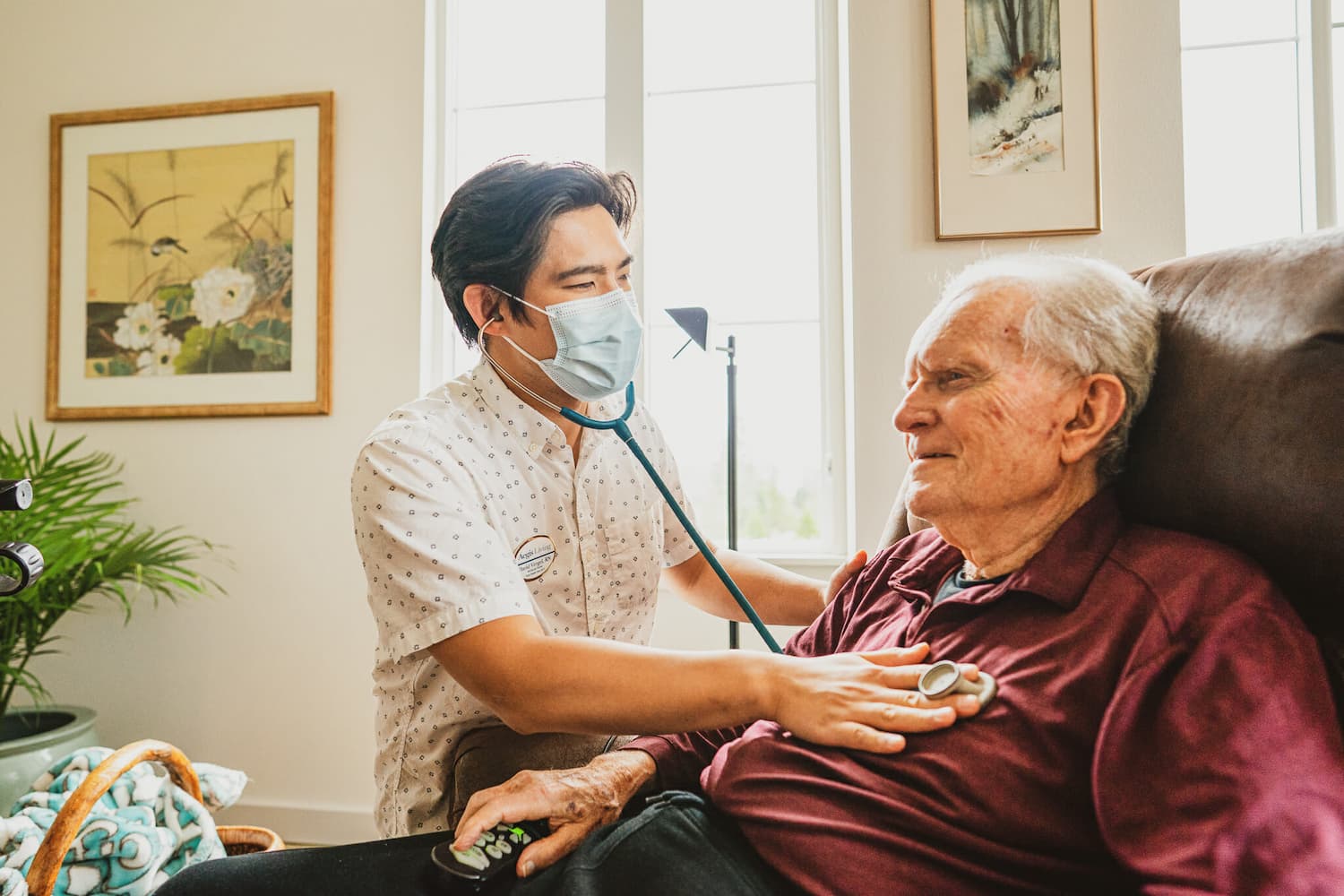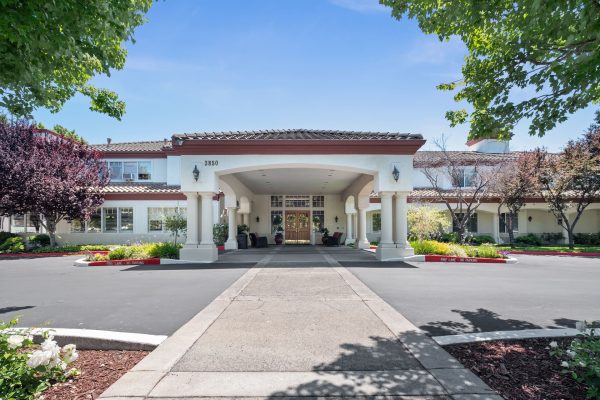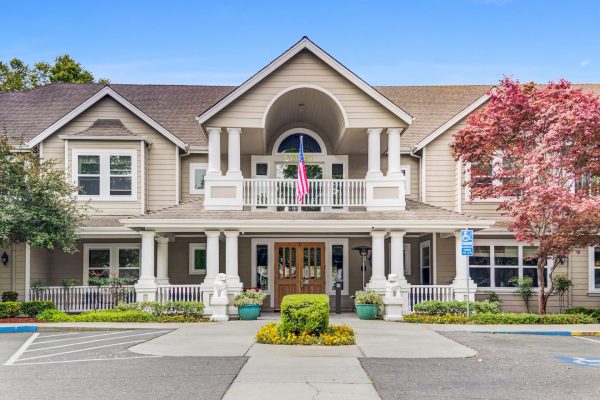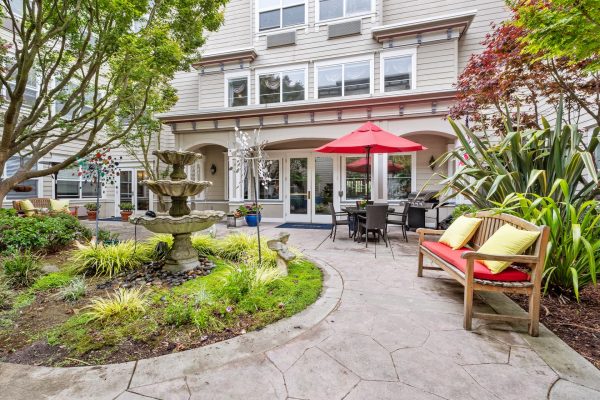
When is Skilled Nursing Care Needed?
Skilled nursing care involves trained professionals administering care services due to injury or illness; these can include:
- Post-operative wound care and complex wound dressings
- Dispensing and monitoring intravenous medications
- Intramuscular injections
- Catheter, incontinence, and colostomy care
- Tube feedings
- Diabetic management
- Assistance with the Activities of Daily Living (ADLs)
- Blood transfusions
- Monitoring of vital signs and medical equipment
- Rapidly changing health status
- Physical therapy to help with strength and balance issues after hip replacement
- Speech therapy to help with communication following a stroke
- Occupational therapy to help a patient become independent again by restoring the ability to dress, groom, or feed themselves.
- Pharmaceutical, laboratory, and radiology services
Skilled Nursing Care Options
Skilled Nursing Facility
Skilled nursing care is most often associated with a skilled nursing facility (also known as a SNF and sometimes referred to as a nursing home). Outside of a hospital, a skilled nursing facility provides the highest level of care. A skilled nursing facility is the right fit if your parent or loved one is living with a complex medical condition and needs 24/7 care from a registered nurse. Typically, this short-term option is available for patients undergoing acute medical treatment and rehabilitation provided by nurses and other medical professionals like physical and occupational therapists, audiologists, and speech pathologists. If your loved one requires round-the-clock monitoring and skilled nursing care after a hospital stay, then moving them into a skilled nursing facility is necessary. If your loved one is suffering from a debilitating medical problem and requires constant aftercare and treatment, their doctor may order inpatient services for their acute medical condition. Many people need skilled nursing care stays after incidents such as strokes or heart attacks to receive rehabilitative care, providing a safety net of constant supervision. Certain medical conditions legally cannot be addressed in assisted living and would require the care a skilled nursing facility offers. Because these are medical facilities, approved furniture is provided, and no pets are allowed. About a quarter of the patients only stay for a few months while they’re recovering. Most patients share a semi-private room, or patients can opt for a private room. The setting is often described as more hospital-like than home-like.
Home Health Services
If your loved one needs part-time or intermittent services, a licensed medical professional can be scheduled for in-home visits. The success of home health services depends on the support system of their living situation. Getting plenty of rest and care in a familiar environment is helpful for their recuperation. But if the patient lives alone, they can feel isolated. They may be unable to perform the tasks needed to recuperate, from cooking to medication management. Rehabilitation exercises may be completed independently but require that the patient is self-motivated and capable of completing the exercises on their own. If you feel your loved one is too weak or unstable to care for themselves properly, and there are no family members who can care for them, then home health services may not be the best fit. Home health services are best suited to relieve the burden of care from a family member caring for a loved one at home and needing extra help.
Assisted Living
Assisted living communities can offer nursing care, therapy services, and 24-hour care staff in a home environment. Basic needs, like the activities of daily living, such as getting dressed, making meals, and bathing, can reduce stress for both the resident and family members. Most communities can provide transportation to and from doctor and therapy appointments. Assisted living communities provide peer support, activities, and socialization that aid in healing and mental well-being. Many families are unaware that assisted living communities offer short-term respite stays for patients released from the hospital to live while they recuperate. Often, a patient will enjoy the community and opt to stay as a permanent resident. If your parent or loved one has an acute medical condition that needs around-the-clock monitoring by a registered nurse, then assisted living is best after they have recuperated in a skilled nursing facility.

Next up
Aegis Living Difference
CEO and founder, Dwayne Clark, built Aegis Living with the determination of creating an alternative to the current senior housing options available. With more than 35 senior housing communities and growing, he has set new standards in the senior housing industry. Dwayne realized there was a better way to care for and serve our aging population. While working his way up in the assisted living industry as a young professional, he kept a box of dreams, ideas, and innovations that would later form the foundation of Aegis Living. Today, each community has a similar “black box” to collect these ideas from our staff and continue to revolutionize the senior housing industry.
Ready to Find Your Perfect Community?
See what Aegis Living has to offer near you! If you’re feeling overwhelmed, just give us a call and we’ll be happy to guide you.
Communities Nearby

Fremont
3850 Walnut Ave
Fremont,
CA 94538

Aegis Gardens (Fremont)
36281 Fremont Blvd
Fremont,
CA 94536

San Francisco
2280 Gellert Blvd
South San Francisco,
CA 94080